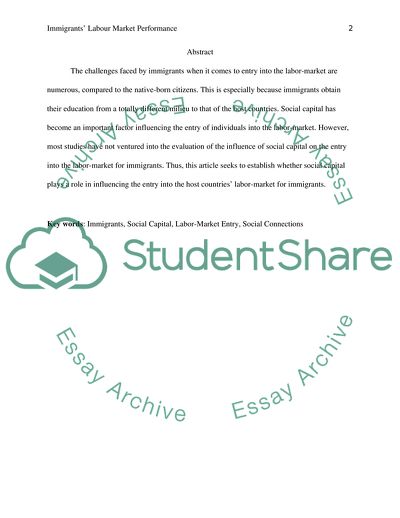Cite this document
(The Impact of Social Capital on Immigrants Labour Market Performance Research Paper, n.d.)
The Impact of Social Capital on Immigrants Labour Market Performance Research Paper. https://studentshare.org/social-science/1875095-the-impact-of-social-capital-on-the-labor-market-entry
The Impact of Social Capital on Immigrants Labour Market Performance Research Paper. https://studentshare.org/social-science/1875095-the-impact-of-social-capital-on-the-labor-market-entry
(The Impact of Social Capital on Immigrants Labour Market Performance Research Paper)
The Impact of Social Capital on Immigrants Labour Market Performance Research Paper. https://studentshare.org/social-science/1875095-the-impact-of-social-capital-on-the-labor-market-entry.
The Impact of Social Capital on Immigrants Labour Market Performance Research Paper. https://studentshare.org/social-science/1875095-the-impact-of-social-capital-on-the-labor-market-entry.
“The Impact of Social Capital on Immigrants Labour Market Performance Research Paper”. https://studentshare.org/social-science/1875095-the-impact-of-social-capital-on-the-labor-market-entry.


